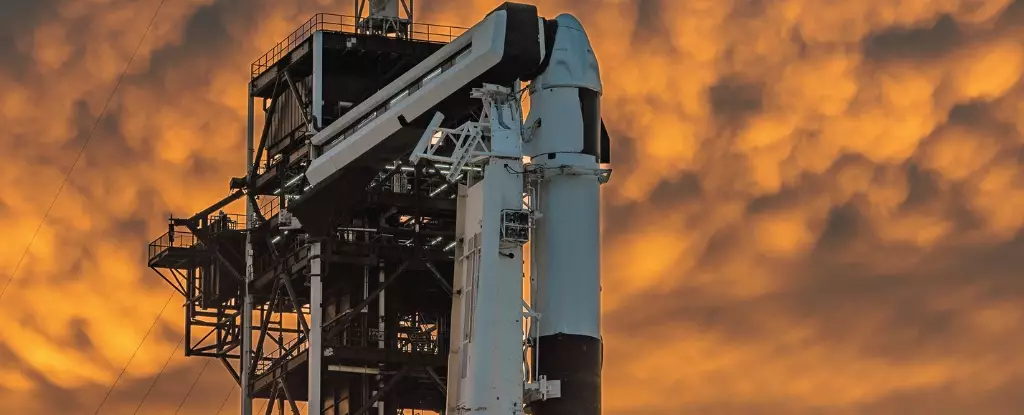

SpaceX’s reliable Falcon 9 rocket faced an unexpected grounding after its first-stage booster toppled over and exploded during a landing attempt following a recent launch. The Federal Aviation Administration (FAA) has initiated an investigation to determine the cause of the failure. This failure occurred after the rocket successfully deployed 21 Starlink internet satellites into orbit but experienced difficulties during the landing process. The incident marked a rare setback for SpaceX, which has maintained a stellar track record of successful launches and booster landings for years.
While the primary mission of launching the satellites was completed, the failure of the first-stage booster raises concerns about the reusability of the rocket system, which is fundamental to SpaceX’s cost-effective business model. SpaceX’s ability to recover and reuse components of the rocket plays a crucial role in driving down the costs of space missions. The failure to land the booster intact could jeopardize the company’s future launches and delay upcoming missions, affecting both commercial satellite deployments and crewed spaceflights.
The FAA emphasized that the investigation aims to enhance public safety, identify the root cause of the incident, and implement corrective actions to prevent similar failures in the future. The agency stated that the return to flight of the Falcon 9 rocket is contingent upon ensuring that no systemic issues pose risks to public safety. Given the importance of maintaining safety standards in the aerospace industry, SpaceX and the FAA must collaborate closely to address any concerns and ensure the reliability of future launches.
The grounding of the Falcon 9 rocket could have far-reaching implications for SpaceX’s upcoming missions, including the scheduled launch of Polaris Dawn, a mission organized by billionaire Jared Isaacman. The mission, which aims to conduct spacewalks with an all-civilian crew, has already faced delays due to technical issues and weather conditions. The setback with the Falcon 9 rocket further complicates the timeline for future launches, highlighting the unpredictable nature of space travel and the challenges of ensuring mission success in a complex and demanding environment.
While setbacks like the recent failure of the Falcon 9 rocket are an inherent risk in the space industry, they also serve as valuable learning opportunities for companies like SpaceX to improve their technology and operational procedures. As the investigation unfolds and corrective actions are implemented, SpaceX will need to demonstrate its commitment to safety and reliability to regain trust and ensure the continued success of its ambitious space exploration endeavors.
Rogue waves have long been a subject of fascination and terror in maritime lore. These…
As the world grapples with public health challenges, especially those posed by infectious diseases, the…
The Sombrero Galaxy, also known as Messier 104, embodies a breathtaking blend of spirals and…
In recent advances in quantum electronics, a groundbreaking discovery leveraging the concept of kink states…
In the intricate tapestry of nature, ice often exists in a delicate balance with liquid…
In an astonishing event that captured global attention, a rogue object from beyond our Solar…
This website uses cookies.